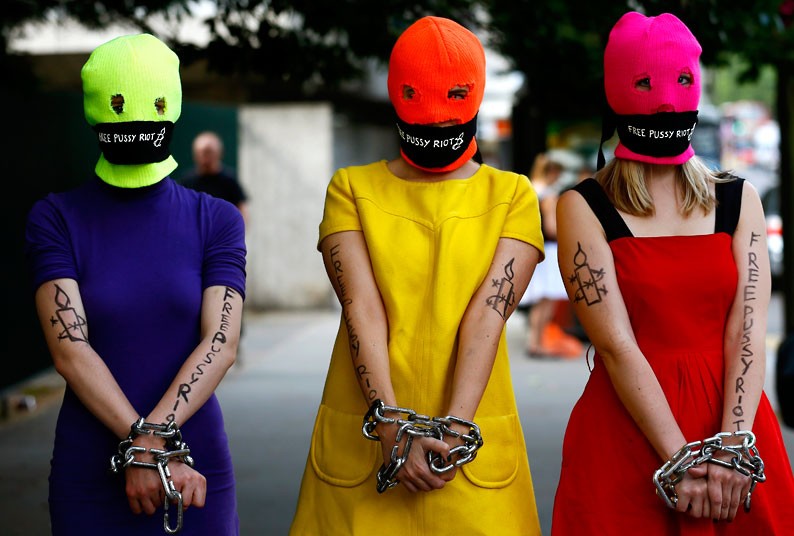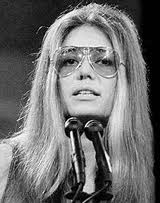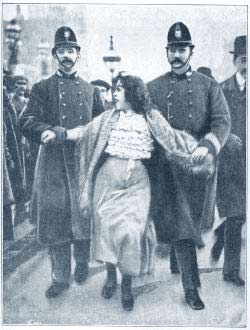 #
#
Feminism, Canada, and Its Modern Implications
History
Amongst political ideologies there are few with a more spirited typecast figure than the feminist. To many the feminist invokes visions of burning bras and protest lines; to others it is another respectable and educated choice in political alignment. Feminism is a loaded term with many connotations and undereducated understandings. Much of what shaped feminism was that which directly opposed it: psychoanalytic theory (which would later be used consistently in the discourse) was greatly a reponse to hysteria (Hunter, 73), the terms Planned Parenthood and birth control were coined in the 1920s to gain recognition of women's health by the government (Engelmen, 182), and Morgentaler's work was a direct reaction to the institutionalization of family care(Wright-Pellerin, 7).
A feminist is "an advocate or supporter of the rights and equality of women" (Oxford (noun). Feminist theory is an academic extension of feminism into various fields. It includes: anthropology, sociology, economics, women's studies, literary criticism,art history,psychoanalysis and philosophy. Feminist theory seeks to understand gender inequality and focuses on politics, power, and sexuality.
First-Wave
The first-wave feminist movement began as early as the late nineteenth century. Though the entrance of women into the workforce during the First World War is often cited as a catalyst for the beginnings of the feminist movement the campaign for women's personhood began long before. Suffragettes sought access to education and equal employment along with their right to vote. During this time feminism acted as a form of binary opposition against the early twentieth centuries instilled standards of Christianity and sex-linked qualities. (Groves and Jenainti 73) Religion was an important factor in the early stages of the feminist movement, in fact it has been criticized for encouraging population and race control and pushing for a perfect race within Genome projects.

Second-Wave
The success of first-wave feminism had a large impact on the theology of second-wave. Because women were more educated the movement began to take both a theoretical and practical approach to women's issues. Theses issues were defined as women's liberation and women's rights, respectively, seeking independence and empowerment. (Groves and Jenainti 86) Having gained legal personhood, the ability to vote and basic rights women now sought to enforce social change in the cultural upheaval of the 1960s and 1970s. Second-wave feminists fought for equal pay, equal rights, right to initiate a divorce, illegalization of marital rape and domestic abuse, as well as new laws for sexual assualt.
Much of what we think of when we think of the stereotypical feminist comes from the women of the second-wave (although many claim that no bras were actually burned).

Third-Wave
Third-wave feminist consciously implemented masculine and female traits (analytical vs. emotional for instance) and embraced them as a method of liberation. Third-wavers continued to challenge the myth of the universal female experience and put a greater emphasis on race, sexuality, religion, and social class as factors in creating equality. Feminist scholar Ann Oakley wrote in the mid-eighties of the myth of biological motherhood. the myth that once a woman becomes a mother that is her role in society and it will never waver. Oakley also sought to disprove the maternal desire for a woman to birth her own children. Oakley believed that children can just as successfully be raised by a group of "social" or "collective" mothers, be them male or female, as had been done historically in villages and towns. (Groves and Jenainti 120-21)
Feminism in Canada
Canada has had is own history with feminism. Canada was one of the earliest countries to give women the vote (Manitoba, Saskatchewan, and Alberta in 1916) although Quebec women were not given the vote until much later in 1940. The Famous Five made up of Emily Murphy, Nellie McClung, Irene Parlby, Loise McKinney, and Henriette Edwards were behind the "Persons Case" in 1927 in which they asked, "Does the word 'Persons' in Section 24 of the British North America Act, 1867, include female persons? Women were ruled as persons in 1929.
Much of Canada's second-wave movement mirrored that of the rest of the Western world with creation of women's organizations by both public and political funding, movement against battered women, and rights movements. A predominant role in Canadian cultural revolution was the creation and execution of both the Canadian Human Rights Act, 1977, and the Canadian Charter of Rights and Freedoms, 1982. Canada differs from other countries in that it has no legislation for abortion, meaning it is decriminalized (since 1969) but there is no regulation. Henry Morgentaler is a famous Montreal doctor who attempted to give women reproductive freedom most notably in R vs. Morgentaler in 1988.
Third-wave feminism followed the rest of the Western world once more but many feminists put a greater emphasis on Quebec and Aboriginal women in their studies and work.
Current and Future Feminist Activity
There has been much debate surrounding feminism in the past decade. "Feminist" is often seen as a dirty word one may say, "I'm not a feminist but..." creating a generation of unfeminist feminists. Camile Paglia has been quoted as saying that contemporary feminism is faltering, "in a reactionary phase of hysterical moralism and prudery" (Craig, Julie Spring 2012) However, feminist tradition finding a new life online and in blogs. Websites like The Hairpin and Jezebel.com approach media and news with a feminist lens while remaining readable, informative, and entertaining. Current issues in women's rights (specifically health, representation and birth control) and the conservative war on women have been presented in the media as well. After excessive and recession many people are redefining their morals and beliefs and feminism is taking a direct hit. but with the help of established theories and the constant recruitment of new young feminists this way be turned around.
See this video for more information:
"What do Feminist Have Left? " with Guy Branum
#pussy riot a Russian feminist punk band

Leave a comment